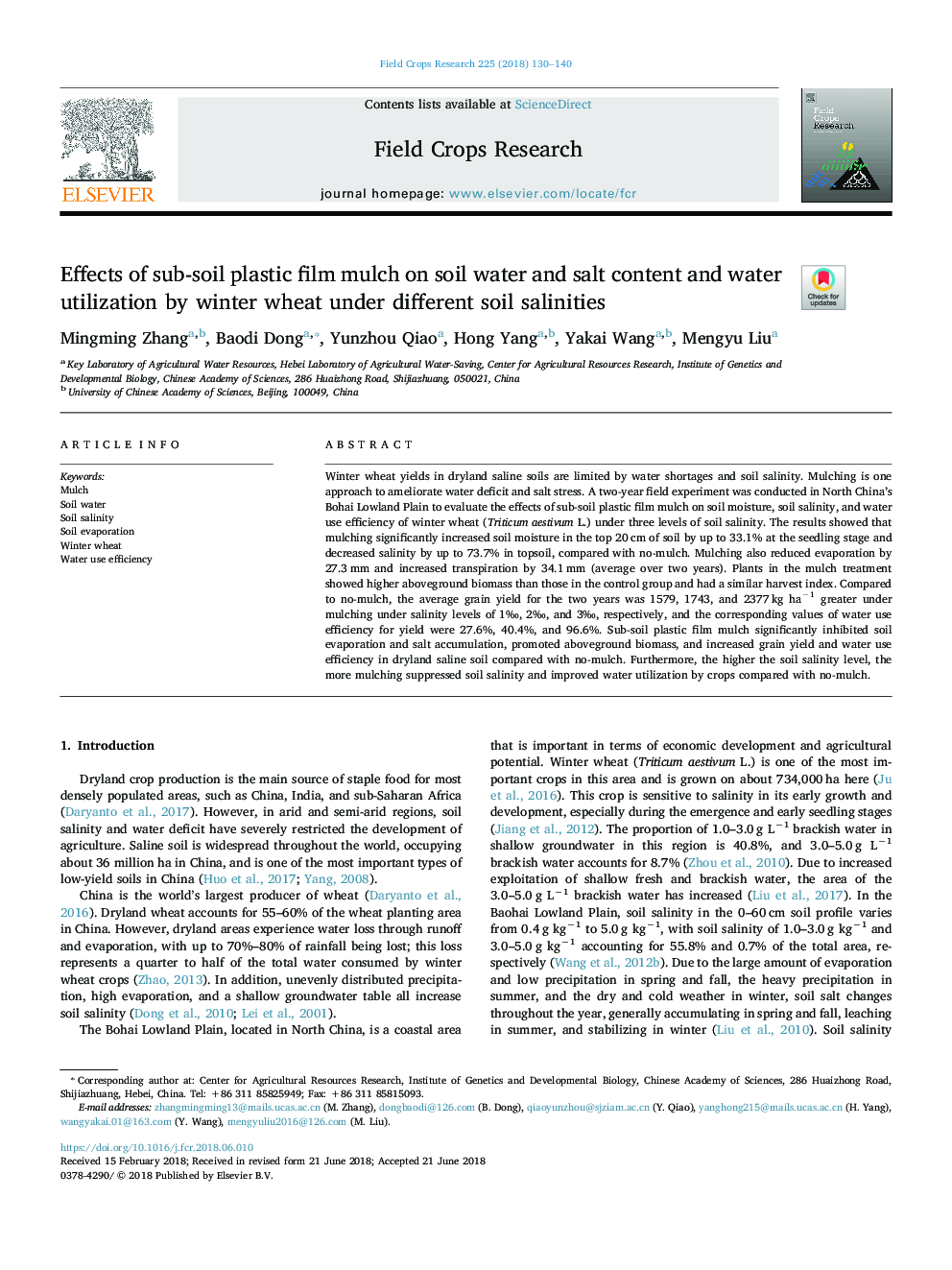| Article ID | Journal | Published Year | Pages | File Type |
|---|---|---|---|---|
| 8879094 | Field Crops Research | 2018 | 11 Pages |
Abstract
Winter wheat yields in dryland saline soils are limited by water shortages and soil salinity. Mulching is one approach to ameliorate water deficit and salt stress. A two-year field experiment was conducted in North China's Bohai Lowland Plain to evaluate the effects of sub-soil plastic film mulch on soil moisture, soil salinity, and water use efficiency of winter wheat (Triticum aestivum L.) under three levels of soil salinity. The results showed that mulching significantly increased soil moisture in the top 20â¯cm of soil by up to 33.1% at the seedling stage and decreased salinity by up to 73.7% in topsoil, compared with no-mulch. Mulching also reduced evaporation by 27.3â¯mm and increased transpiration by 34.1â¯mm (average over two years). Plants in the mulch treatment showed higher aboveground biomass than those in the control group and had a similar harvest index. Compared to no-mulch, the average grain yield for the two years was 1579, 1743, and 2377â¯kg haâ1 greater under mulching under salinity levels of 1â°, 2â°, and 3â°, respectively, and the corresponding values of water use efficiency for yield were 27.6%, 40.4%, and 96.6%. Sub-soil plastic film mulch significantly inhibited soil evaporation and salt accumulation, promoted aboveground biomass, and increased grain yield and water use efficiency in dryland saline soil compared with no-mulch. Furthermore, the higher the soil salinity level, the more mulching suppressed soil salinity and improved water utilization by crops compared with no-mulch.
Related Topics
Life Sciences
Agricultural and Biological Sciences
Agronomy and Crop Science
Authors
Mingming Zhang, Baodi Dong, Yunzhou Qiao, Hong Yang, Yakai Wang, Mengyu Liu,
